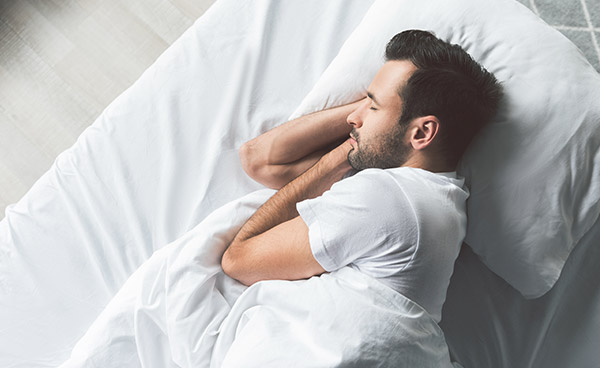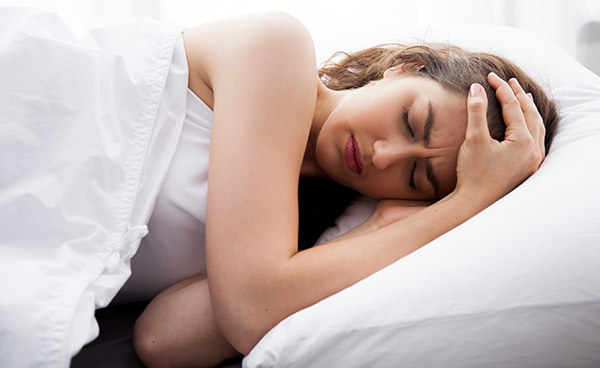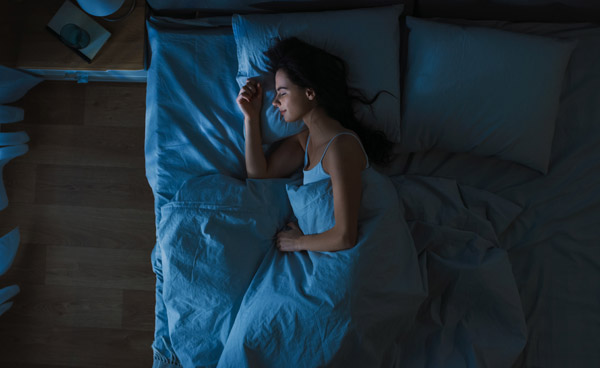Are you having nightmares? Experiencing insomnia? Do you have the sensation that you’re falling through the air when you fall asleep? Or do you grind your teeth at night? All these symptoms belong to the same category of disorders, which are called parasomnias, or sleep disorders.
All categories combined, parasomnias affect about 4% of adults and 17% of children.1 There are several parasomnias with varying levels of severity, but they have one thing in common: most people asleep are unaware of their actions. Sleepwalking is a well-known example of an unconscious parasomnia. Parasomnias occur during sleep, but more commonly when a person begins to fall asleep or wake up. They usually last about 30 minutes.
Here is a list of the most common parasomnias:
- Insomnia: It is estimated that one in 10 Canadians suffers from insomnia, which is not trivial!2
- Night terrors and nightmares: The sleeper starts screaming and becomes agitated under the effect of fear (a disorder more common in children, most likely).
- Snoring: Did you know that this disorder affects men more than women, but not exclusively?
- Sleep apnoea: These respiratory stops during sleep can unfortunately lead to serious health problems.
- Somniloquy: Many adults suffer from this disorder, which is prevalent in childhood. It makes you talk or scream while sleeping. It’s not enjoyable for your bedmate, however...
- Sensory hallucinations (or hypnagogic): These occur when the body falls asleep before the brain. The sensation of falling through the air when going to sleep belongs to this category!
- Bruxism: This is the grinding of the teeth at night, which can lead to tooth wear and jaw pain.
Did you know that most parasomnias occur during the Rapid Eye Movement (REM) phase of your sleep, when your brain is active and our body relaxed? During a normal night’s sleep of 8 hours, you go into the REM phase 4 to 5 times, or up to 25% of your time asleep.
Causes and risk factors
Parasomnias have different causes and risk factors ranging from mild to more serious. They are often due to:
- Anxiety or overwork
- Sleep deprivation or jet lag
- Taking medication or drugs
- A disease
- Genetics
Some parasomnias are even considered a warning sign of certain degenerative diseases, such as Parkinson's disease.
When should you see a doctor?
Without worrying too much, it is better to consult a doctor when a parasomnia manifests itself too regularly, especially in adults. You can seek the opinion of a doctor or a psychologist. You can also contact a dentist who is familiar with these disorders, since snoring, apnoea and bruxism often have a cause or a dental impact. A sleep professional can make a diagnosis, assess your oral health and advise you, for example, about the use of a custom-made oral appliance to reduce the disorder and its side effects.
When parasomnia speaks to you, you should listen—and take action!
---
1 Physiopathologie du somnambulisme, Université de Montréal [Online] https://papyrus.bib.umontreal.ca/xmlui/handle/1866/21157 (page viewed November 5, 2020).
2 Prevalence of insomnia for Canadians aged 6 to 79, Statistics Canada [Online] https://www150.statcan.gc.ca/n1/en/catalogue/82-003-X201801200002 (page viewed November 5, 2020).








